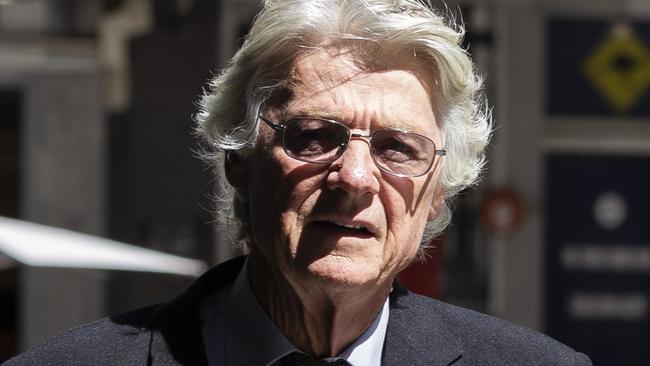Lawyers spar over Julian Wright royalties
An attempt by black-sheep heir Julian Wright to win back a chunk of his family’s multi-billion dollar mining fortune has been savaged by his siblings’ lawyers.

An attempt by black-sheep heir Julian Wright to win back a chunk of his family’s multi-billion-dollar mining fortune has been savaged by lawyers for billionaire Angela Bennett and her dead brother Michael Wright.
The latest legal battle over the spoils from one of the most valuable contracts in Australian commercial history came to a close on Friday, with Justice Rene Le Miere set to rule in the coming months whether Julian Wright was misled when he sold his shares in the family business.
Lawyers for Julian Wright have argued that he was kept in the dark about the true value of Wright Prospecting (WPPL) and its potential when he struck the 1987 deal to sell his shares in the business to his siblings for $6.8m.
Pat Zappia SC, representing Julian Wright, also argued that arbitration proceedings at the time found that Peter Wright’s estate was entitled to a share of the iron ore royalties, rather than just WPPL itself. Such a finding would mean the estate was not bankrupt, and would have ramifications for the way the iron ore royalties are distributed.
But Kristina Stern SC, representing Ms Bennett and the estate of Michael Wright, noted Julian Wright had been presented with pages of royalty receipts and was well aware at the time he was contemplating the sale of his stake that iron ore royalties were critical to WPPL.
“There’s no dispute that the vast majority of WPPL’s income came from royalties,” she said. “Julian’s own account was that the royalty income was used up in a range of other investments.”
The case is the latest to stem out of the original 1962 agreement between Hamersley Iron and business partners Lang Hancock and Peter Wright over vast iron ore deposits in Western Australia’s Pilbara. The deal gave the Hancock and Wright dynasties a share of royalties from the Pilbara iron ore operations that now underpin global mining giant Rio Tinto, and ensured billions of dollars of royalties would flow to the Hancock and Wright empires for decades.
Julian Wright’s lawyers argued that an arbitration process over the iron royalties ended after Peter Wright’s death gave his estate a one-quarter share of the Pilbara iron ore royalties. The arbitration was resolved in favour of Hancock Prospecting (HPPL), WPPL, Hancock and Peter Wright.
But Ms Stern said the arbitration dealt with only the amount of royalties that should be paid, not who they should be paid to. HPPL, WPPL, Hancock and Peter Wright, she said, were simply named in the arbitration’s findings as defendants rather than separate entities who should receive equal shares of the royalties.

